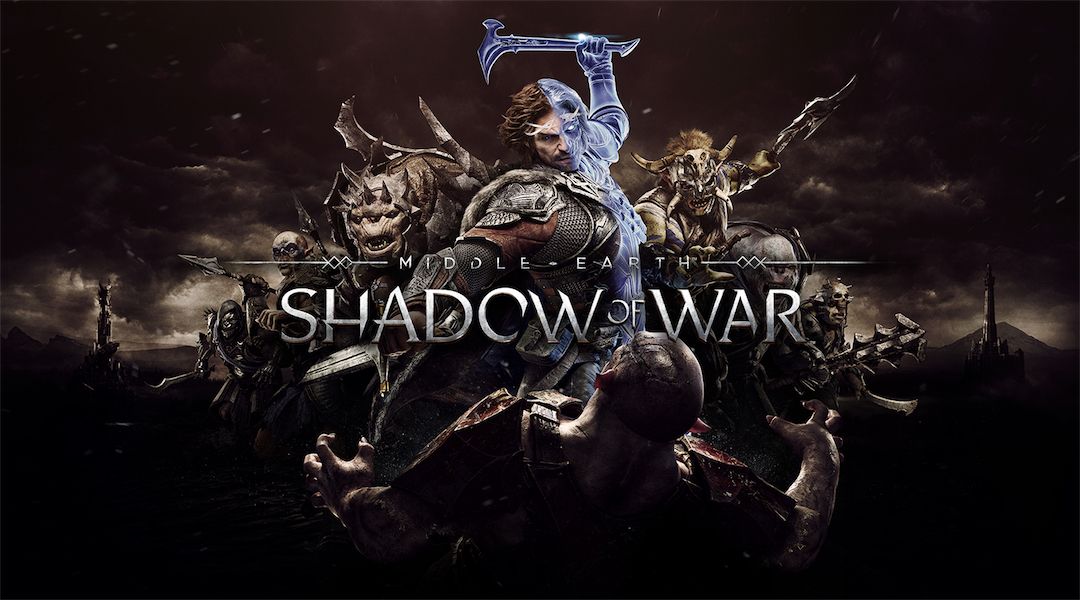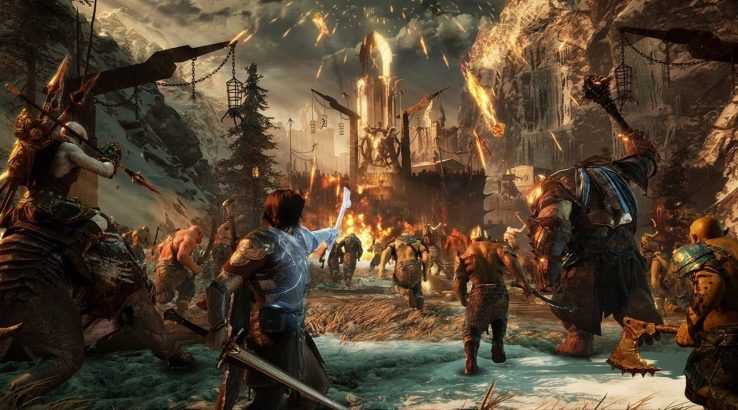Middle-earth: Shadow of Mordor released about three years ago and caught the gaming world with its revolutionary Nemesis system, which made every death in the game carry emotional weight and baggage. The game managed to step outside the strict lore of The Similarion and tell a fresh story in Middle-earth that doesn't lean too heavily on the characters established in Lord of the Rings. This year the teams from Monolith and Warner Bros. are back and have somehow found a way to improve on the already winning formula with Middle-earth: Shadow of War.
The sequel kicks off very shortly after the final chapter of Shadow of Mordor and puts players back in control of Talion the ranger and the Celebrimbor, the wraith whose spirit is bound to Talion's. Interestingly enough, in terms of story the first act of the game is somewhat similar to that of Destiny 2's. The Middle-earth: Shadow of War protagonist is robbed of his newly minted power ring and goes from being a god-like super hero back to a fragile, but skilled, ranger. As players work to regain their power, protect Gondor, and fight off Sauron's growing armies with their own; an incredibly addictive gameplay loop begins to emerge.
The core combat of Shadow of War hasn't changed much since the original. The game encourages stealth and strategy, but large-scale encounters often turn into giant hack-and-slash battles that see Talion face off against ten or more Orcs and beasts. The fighting system is still reminiscent of the Batman Arkham series (in a good way) and encourages movement, rhythm, and well-timed parries. The combat gets increasingly more interesting and complex as players level up and unlock new melee and ranged abilities. Experience points come quickly in Shadow of War and it won't take long for players to build up a full arsenal of counters, attacks, and defensive moves.
The combat does an amazing job at making the player feel very powerful and its only real downside is how many button combinations players need to memorize after they have dumped skill points into new abilities. It's possible that this may feel a little more natural for PC gamers using a keyboard with more button options.
After the first act of the game wraps up, players gain some new abilities that greatly change how they will enter most combat encounters. Once Talion learns how to dominate Orcs and win them over to his side of the fight, players can start to amass a small army of back up soldiers before entering any combat encounter. There is always still the option to head in guns blazing and rely on combat skill to make it out alive, but we had a ton of fun taking the stealth approach and slowly dominating the majority of Orcs in any given zone and then letting them tear each other apart. The enemies are also bigger and badder than ever and breaking and dominating the mountable beasts is yet another way the game makes players feel like Middle-earth's own super hero.
On a similar note, Talion is also able to dominate Orc captains and force them to lead armies on his behalf. This leads to a series of Army missions that is somewhat similar to Order Hall Quests in World of Warcraft or Fleet Quests in Assassin's Creed: Black Flag. The big difference here is that there is a lot more troop management in Shadow of War.
The Army Missions are a ton of fun and we had a great time dominating each zone on the massive map until our armies ruled supreme, but we can't overstate that Shadow of War is a deep game with lots of moving parts that may be a bit intimidating for more casual gamers. There are a lot of systems to keep track of, which isn't usually the case for these types of action adventure games. That said, players who are up to the task won't be disappointed.
The game also embraces its RPG nature with its loot system and gear. The MMO players out there will definitely get a thrill from seeing Legendary gear drop after killing an Orc captain or some other boss. We didn't spend any money on mircotransactions during the review period, or explore the Marketplace very much, but we did enjoy the carrot on a stick of chasing down the next piece of upgraded gear. Ignoring the microtransaction options did not negatively impact our experience with gear or with leveling up the Army. There is definitely a lot of end-game content to keep players busy if they enjoy the ride through Shadow of War and it seems likely that the microtransaction temptation will be highest for that part of the community.
The story in Middle-earth: Shadow of War is entertaining and has the perfect amount of classic Tolkien elements to offer some fan-service for the longtime fans, but not rely on lore so heavily that newcomers will feel bored or left out. One of the few complaints about the game is that the tone is sometimes a bit uneven. Talion's personal journey, and the story of the rest of the 'good guys,' feels dramatic and serious; but every interaction with the Orcs feels a bit silly and slapstick. This was the case in the first game as well and, while it isn't a deal breaker by any stretch, may not sit well with some gamers who are more interested in the cinematic story than the one-off Orc's and their weird personalities.
Shadow of War offers dozens of hours of entertainment for gamers who enjoy action adventure titles with a strong splash of RPG elements. The moving parts may be a touch too complicated for the most casual gamers, but players who are patient enough to master all of the game's systems will be rewarded with an exciting story, control of a powerful army, and an unstoppable protagonist.
Middle-earth: Shadow of War releases on October 10, 2017 for PC, PlayStation 4, and Xbox One. Game Rant was provided an Xbox One code for this review.


